Giving lessons on being a giver
15 Jul 2022
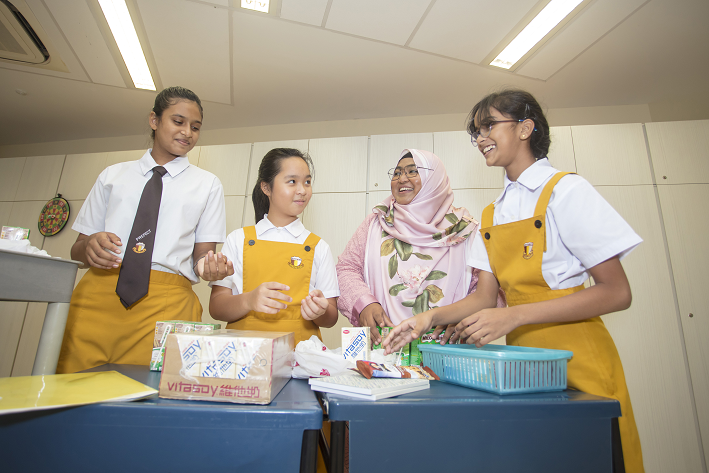
Even students in need can be generous – this is just one of the life lessons Ms Norasiken Bte Mohd Noor imparts through her form classes and activities for students on financial assistance at Haig Girls’ School. The Malay Language teacher shares how feeling gratitude as a young student has motivated her to build healthy values and esteem in her students.
By Norasiken Binte Mohamed Noor, Haig Girls’ School, Outstanding Youth in Education Award 2022 Recipient
Tell us a story that captures the kind of teacher you are.
I was 10 years old and waiting in line at an event hall in Downtown East. I had my Primary 5 book list and was going to pick up used textbooks for free; this was one of the provisions for students on the Financial Assistance Scheme (FAS), which helps families who need financial help. Like all my past textbooks, some of the books were scrawled on with drawings, and the spaces for answers were already filled. I remember consoling myself that at least the plastic covers on the books kept them in relatively good condition.
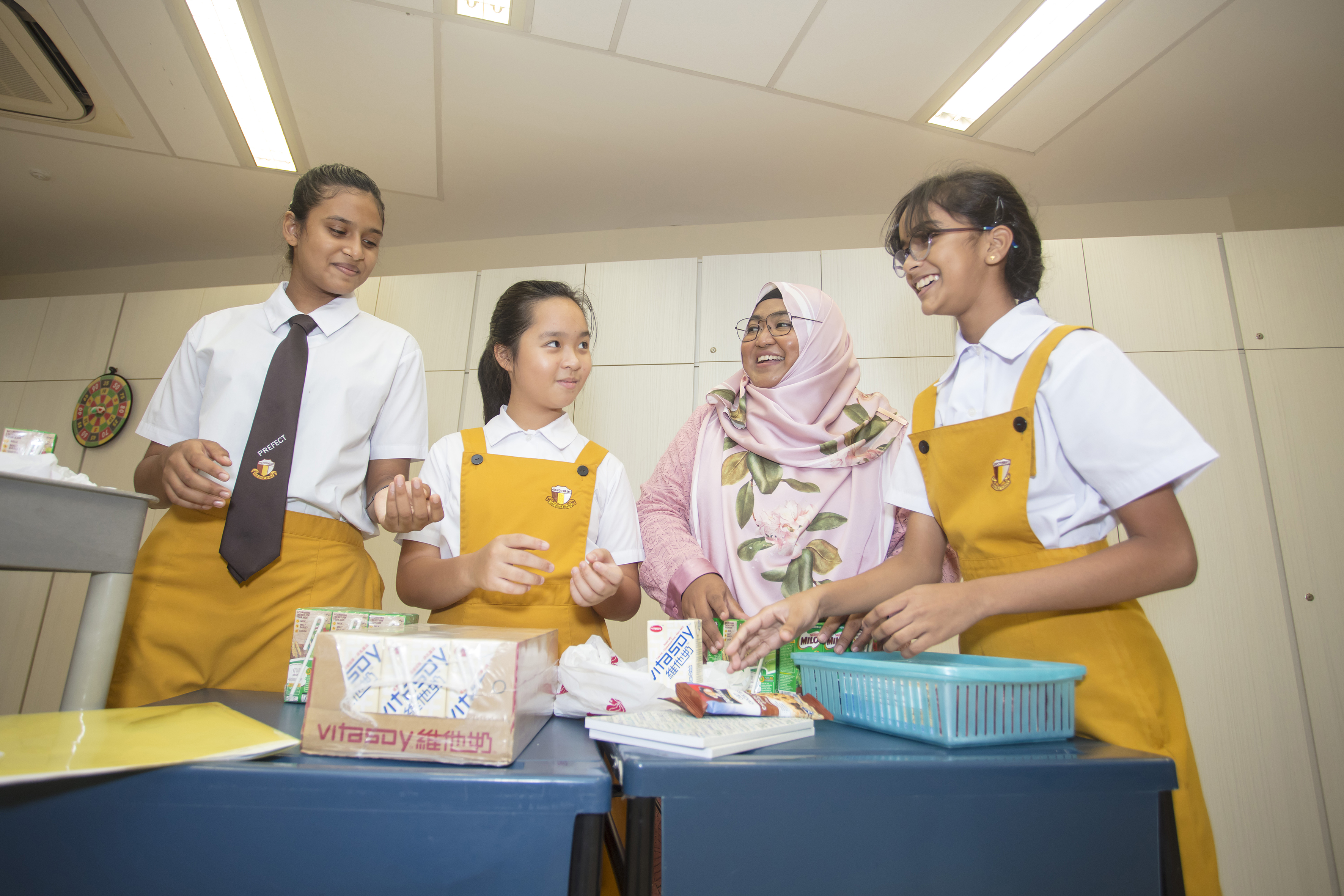
Guiding student members of Project P.A.C.E. to pack snack packs for their peers.
“If there is one child who lacks hope, that is one child too many.”
Describe a teaching method or tool you have found effective.
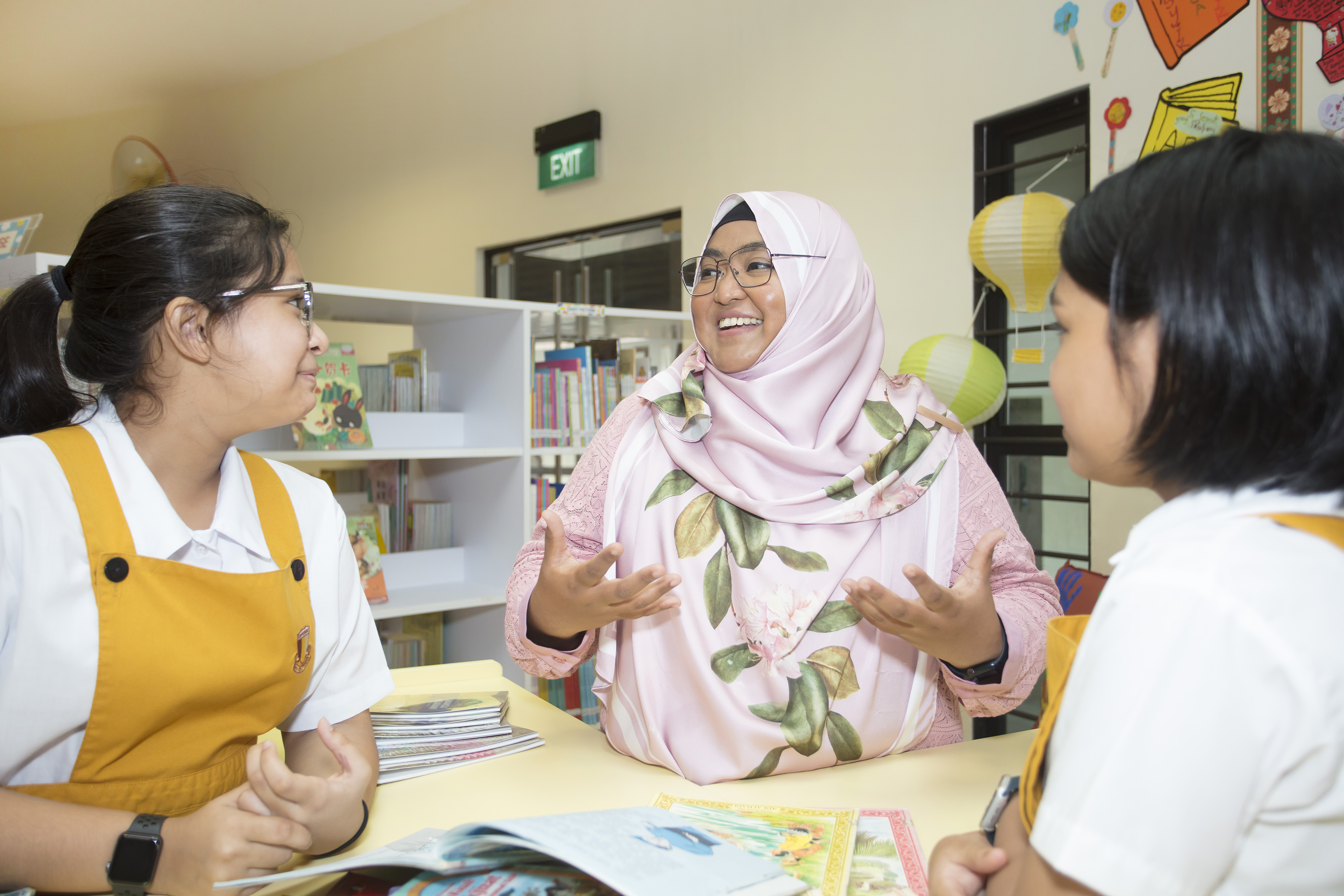
Sharing constructive feedback
Which school project or initiative are you especially proud of?
“It is the values that you have in you that will truly shape who you’ll become.”
These are wise words from a dear teacher of mine, Dr Nor Hanisah Saphari from Catholic Junior College, and I share these words often with my students. Inculcating values is of utmost importance to me as an educator, a passion I share with Dr Nor Hanisah. She had researched on the use of children’s literature to inculcate values in students. When she initiated the idea to develop Project NITRA – short for Nilai dalam Sastera – which translates to “values in literature”, I jumped at the opportunity! Together with the Malay language teachers from Raffles Institution and Woodgrove Secondary School, we piloted this project. The collaboration between these schools was deliberate, to widen the reach and perspectives gained through the project.
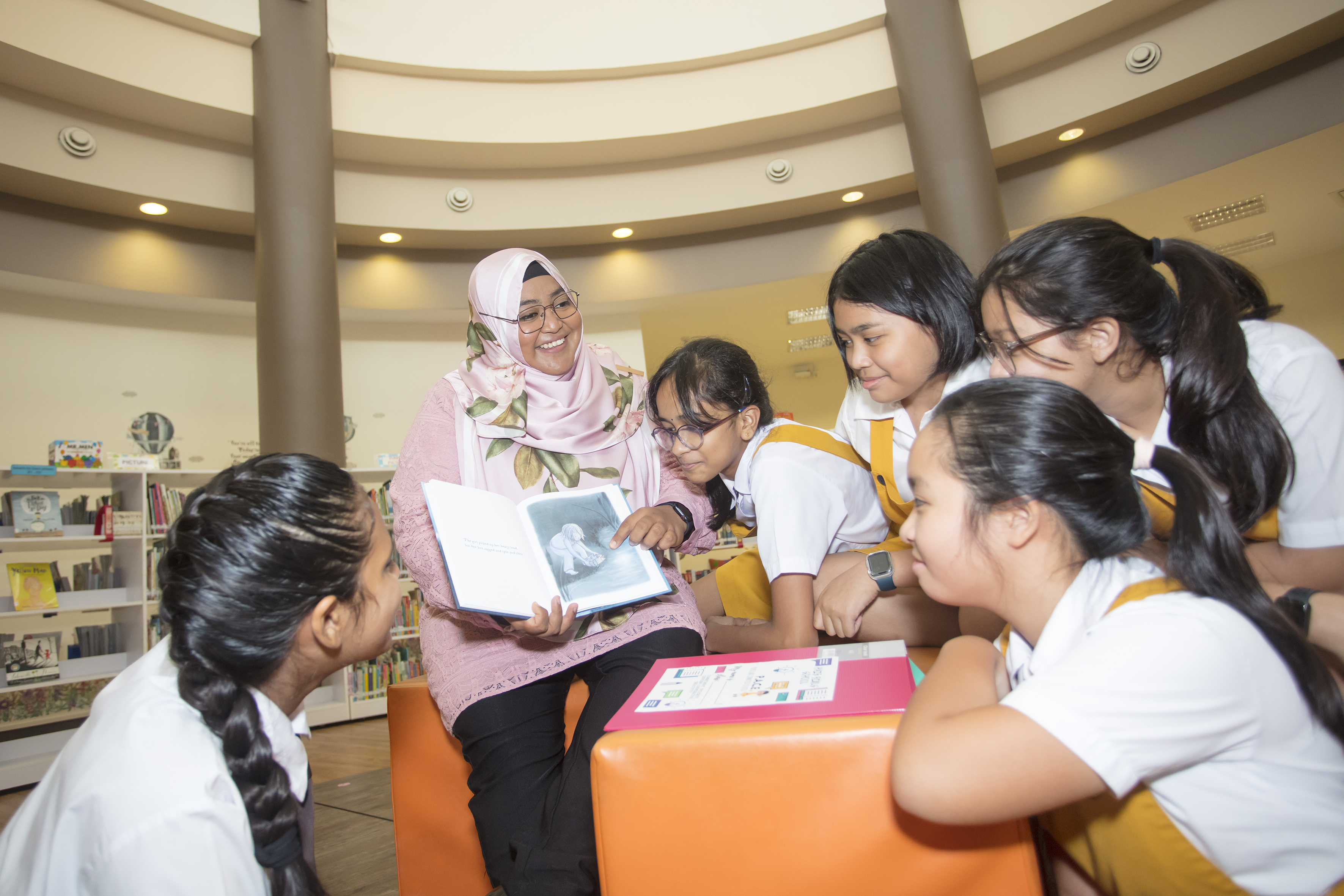
Leveraging on literature to inculcate values
Through the sharing, my students were exposed to public presentation skills as they shared their reflections with the older students, while the latter gained confidence as role models and senior presenters. The collaboration also broadened my students’ perspectives on how traditional literature can still be relevant to their lives today, and how they can apply the values that are captured within.
“The collaboration also broadened my students’ perspectives on how traditional literature can still be relevant to their lives today, and how they can apply the values that are captured within.”
Following a successful run in 2021, we are looking to expand Project NITRA to more schools in 2022, with the hope that the values our students learn from literature texts can guide them through life.

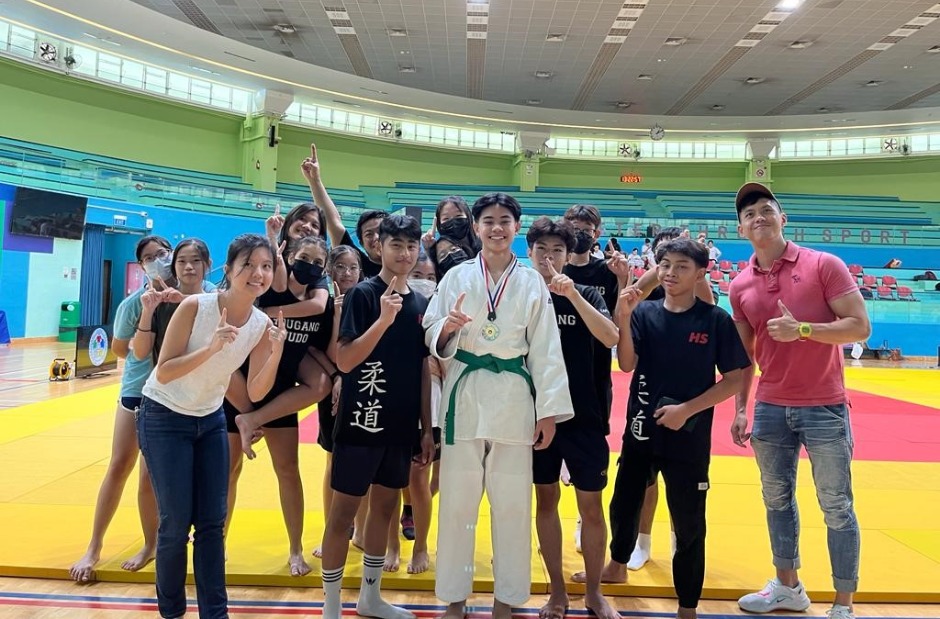
.jpg)
.jpg)

